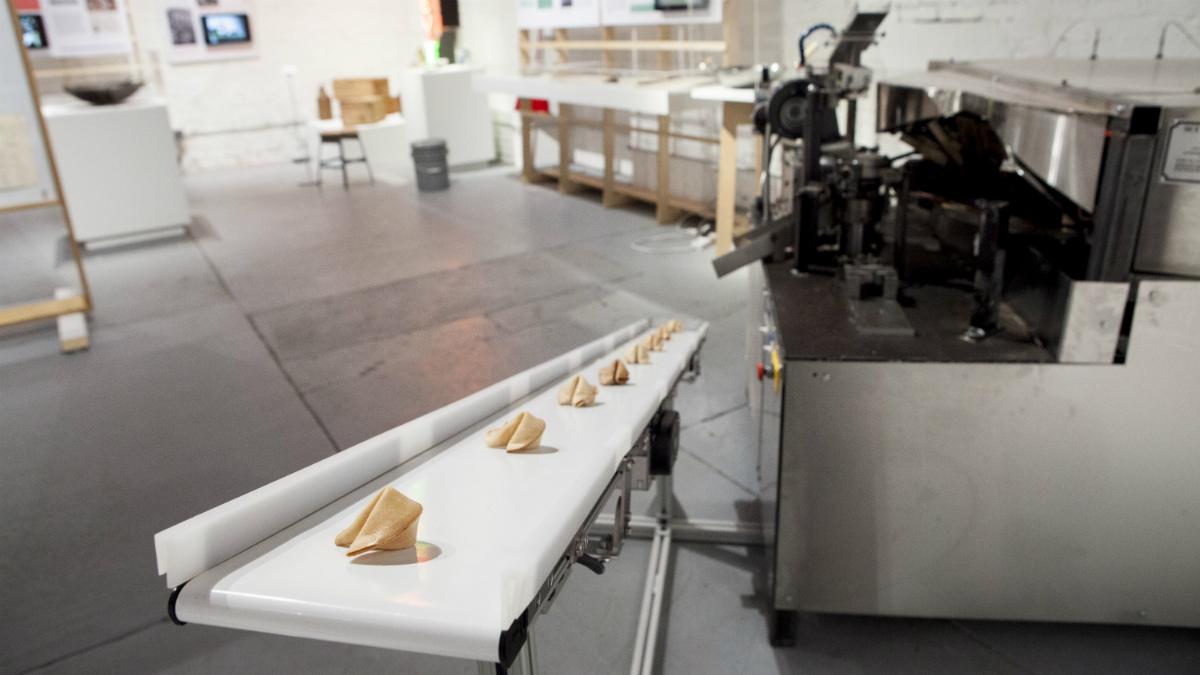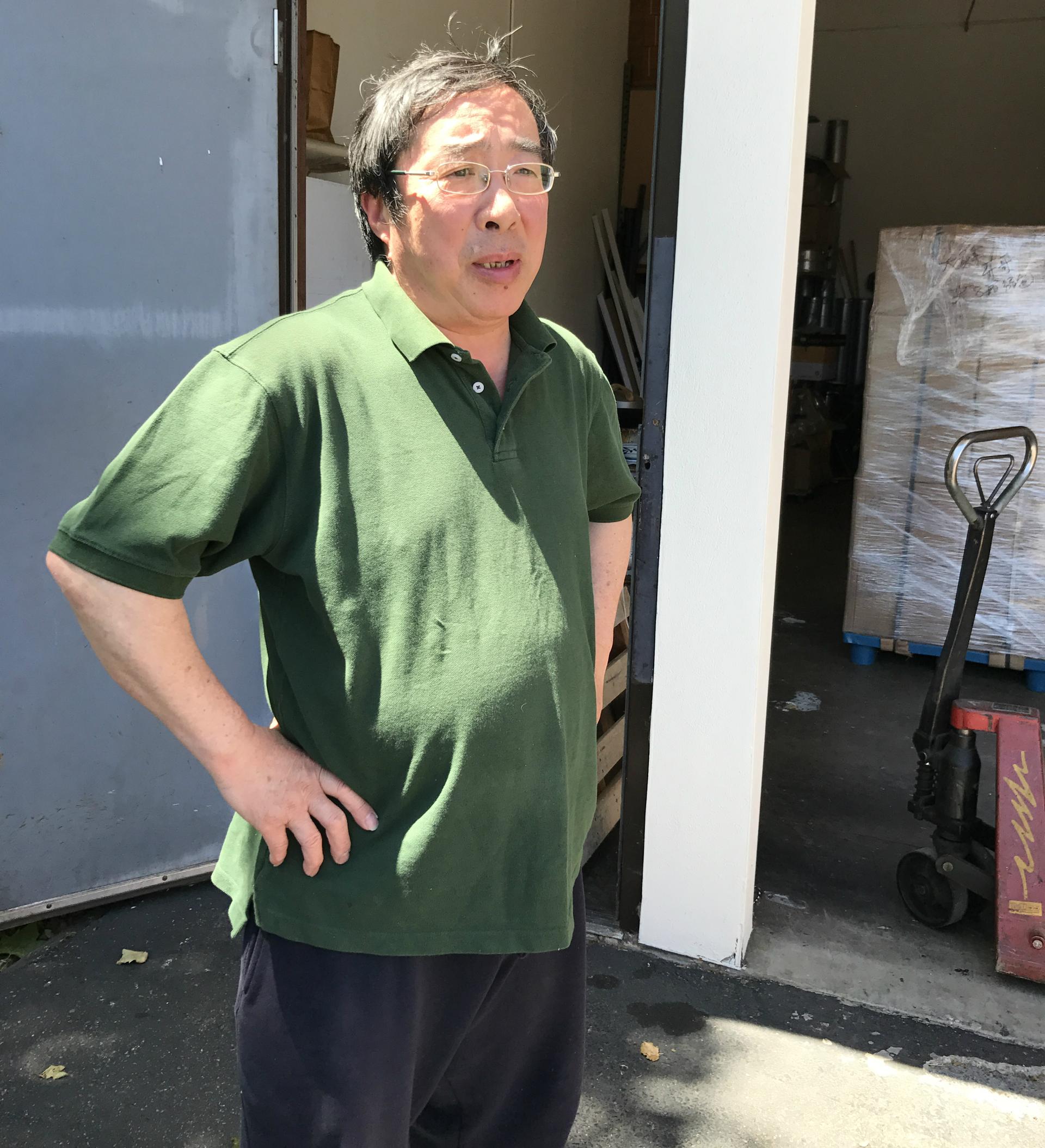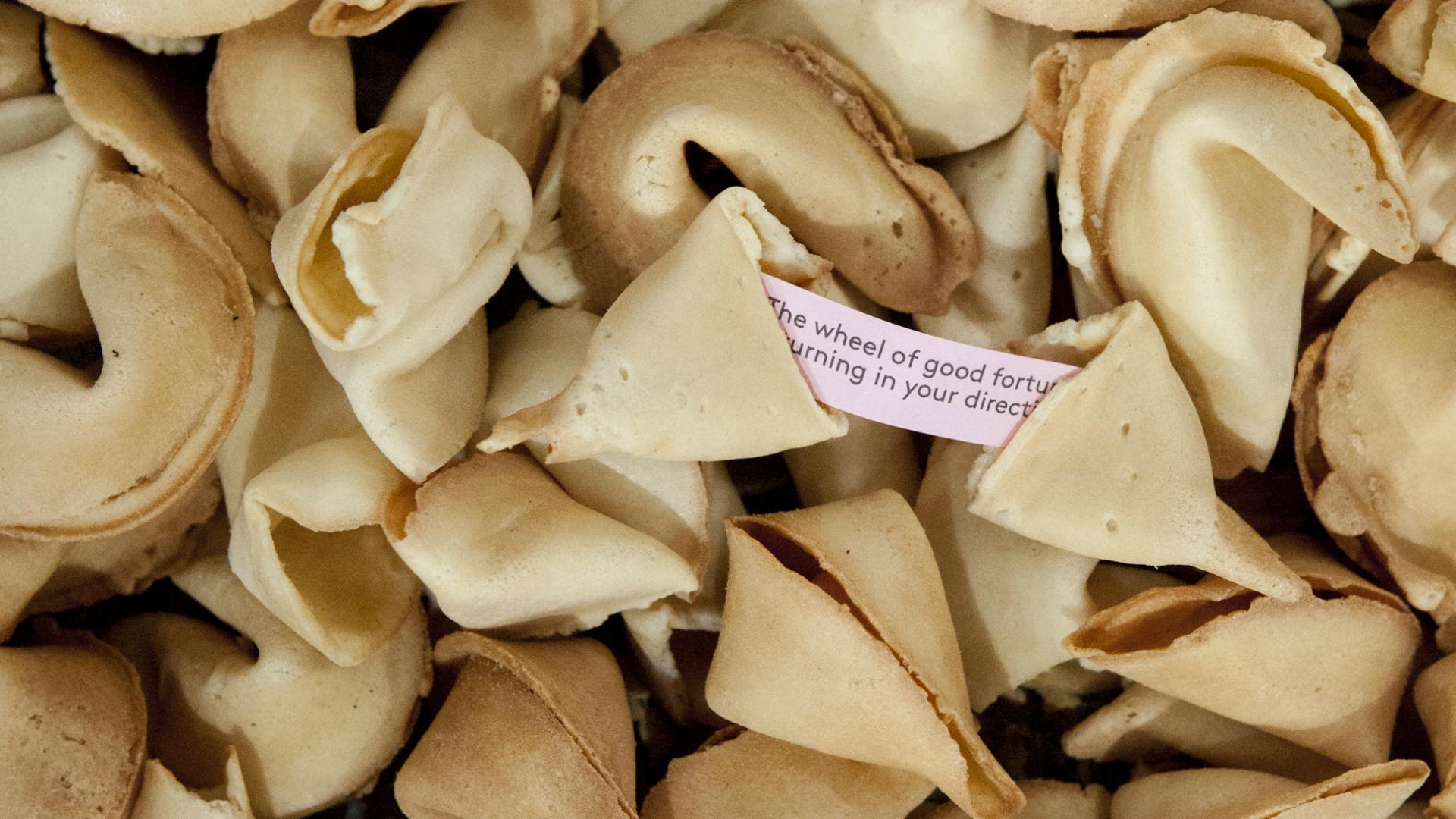Cracking open a case of fortune cookie theft
How did fortunes become a staple at Chinese restaurants in the US?
This week on The World in Words, a taste of edible intrigue.
"Some men dream of fortunes. Others dream of cookies." This is a real fortune cookie fortune. It would be a prescient fortune for Yongsik Lee.
Lee invented the fully automatic fortune cookie machine in the early '80s and built a business on his invention. The Korean immigrant sold fortune cookie machines and fortunes to companies all over the US. It was a good business until one day, one of his employees stole his fortunes and his customers.
The World’s producer Lidia Jean Kott went on a journey to get to the bottom of a theft that forever changed Lee's life. She also got to the bottom of the eternal question: Why are fortune cookie fortunes never really fortunes? That, and where do fortune cookies come from anyway? Hint: It's not China.
Podcast contents:
00:16 Producer Lidia Jean Kott tells an anecdote about a Panda Express fortune cookie fortune.
1:20 Why are fortune cookie fortunes hardly ever fortunes?
1:37 Part 1: Some men dream of fortunes. Others dream of cookies.
1:52 Lidia Jean meets James Wong, the fortune writer at Wonton Food in New York.
2:40 Despite staying positive, some fortunes have gone really, really wrong.
3:35 Wong thinks about his daughter when writing fortunes.
4:20 Wonton Food produces 4.5 million fortune cookies a day.
4:46 Part 2: The only sure thing about luck is that it will change.
4:54 Yongsik Lee invented the first fully automatic fortune cookie machine. He filed for a patent in 1981.

5:41 In the late 1990s, one of Lee’s disgruntled employees stole his fortunes and started a rival business in San Francisco.
6:33 Forgiveness does not change the past but it does enlarge the future.
7:00 Lidia Jean talks with David Lee about the theft of his father’s fortune cookie business.
7:56 Part 3: The riches of others make you more valuable.
8:10 Takeshi Matsuhisa works at the Hogyokudo bakery where his family has been making fortune cookies for many generations.
9:20 Japanese fortune cookies are a lot like American ones except there are only 30 fortunes.
9:58 How did Japanese fortune cookies come to the United States and become associated with Chinese restaurants?
10:13 The Gold Rush! Many Chinese people immigrated to the United States to seek their fortunes during the Gold Rush. But because of anti-immigrant measures and prejudice, work was hard to come by, and many Chinese immigrants were forced to open up restaurants.
11:00 Japanese people opened up Chinese restaurants when they immigrated to the US.
13:00 Steven Yang stole Yongsik Lee's fortunes. Lidia Jean tries to get in touch with Yang.
14:15 “Something Dreadful Has Happened to Fortune Cookies” read the front page of the Los Angeles Times on Nov. 4, 2000.
15:10 Depressed novelist Russell Rowland took a job with Yang to write 1,000 fortunes.
16:09 Rowland cribbed a lot of fortunes from a book called, “The Great Thoughts,” but he soon was burned out on writing fortunes.
17:48 Part 5: You will be unusually successful in business.
18:08 Lidia Jean flew to San Francisco to speak with Yang, the fortune cookie thief, in person.

19:21 Meeting Yang at his warehouse where he cuts fortunes all day long to ship around the globe
21:15 Yang wanted to talk about stealing the fortunes that started his business.
23:42 People eat their fortunes! Yeah, the little slip of paper.
25:00 It’s not where you take things from but where you take things to.
25:26 Thanks to the many people we “stole” from for this episode, like Jennifer 8. Lee, the author of the book "The Fortune Cookie Chronicles," and Terry McDermott, the author of the article "The Sage of Fortune Cookies."
26:11 Nina and Patrick and Lidia Jean eat fortune cookies and find the meaning of life.
